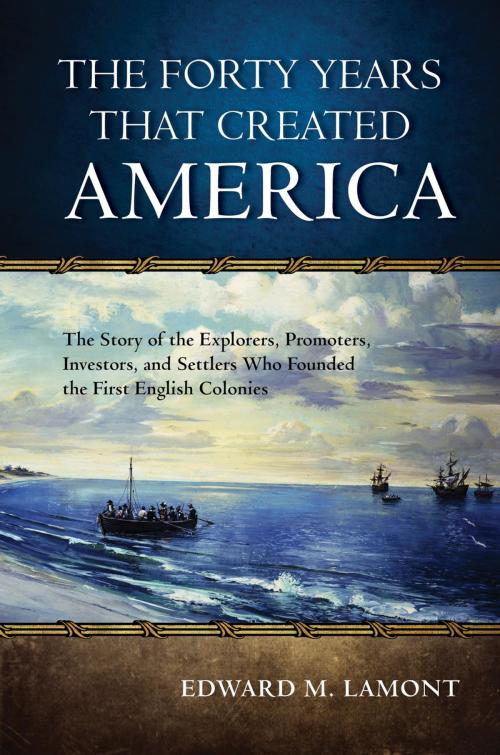The Forty Years that Created America
The Story of the Explorers, Promoters, Investors, and Settlers Who Founded the First English Colonies
Nonfiction, History, Americas, United States, Colonial Period (1600-1775)| Author: | Edward M. Lamont | ISBN: | 9781442236608 |
| Publisher: | Rowman & Littlefield Publishers | Publication: | October 3, 2014 |
| Imprint: | Rowman & Littlefield Publishers | Language: | English |
| Author: | Edward M. Lamont |
| ISBN: | 9781442236608 |
| Publisher: | Rowman & Littlefield Publishers |
| Publication: | October 3, 2014 |
| Imprint: | Rowman & Littlefield Publishers |
| Language: | English |
The names “Jamestown” and “Plymouth” have become synonymous for most students of American history with “founding,” and “birth”—both, of the American nation, and of freedom and democracy themselves. In this book, author Ted Lamont asks us to reconsider our country’s formative years, and explore the stories, lives, achievements, and failures of America’s earliest founding fathers: those who paved the way for the Colonial Era, and the American Revolution. They were explorers, investors, passionate religious leaders, and determined developers who struggled for generations to successfully plant the English flag in this strange new soil. Lamont deftly details the ways in which the stories and struggles of figures like Sir Walter Raleigh, Bartholomew Gosnold, Richard Hakluyt, Sir Ferdinando Gorges, and Captain John Smith were not just related, but connected in ways that help us better understand the colonies and culture born of their efforts. The infancy of America— from Roanoke’s founding in 1585 through the firm establishment of Jamestown and Plymouth in 1625—is where we first see planted the seeds of the rest of America’s colonial, economic, political, and cultural history, that was the immensely difficult, and often overlooked, first step toward the New World we are still working to perfect.
The names “Jamestown” and “Plymouth” have become synonymous for most students of American history with “founding,” and “birth”—both, of the American nation, and of freedom and democracy themselves. In this book, author Ted Lamont asks us to reconsider our country’s formative years, and explore the stories, lives, achievements, and failures of America’s earliest founding fathers: those who paved the way for the Colonial Era, and the American Revolution. They were explorers, investors, passionate religious leaders, and determined developers who struggled for generations to successfully plant the English flag in this strange new soil. Lamont deftly details the ways in which the stories and struggles of figures like Sir Walter Raleigh, Bartholomew Gosnold, Richard Hakluyt, Sir Ferdinando Gorges, and Captain John Smith were not just related, but connected in ways that help us better understand the colonies and culture born of their efforts. The infancy of America— from Roanoke’s founding in 1585 through the firm establishment of Jamestown and Plymouth in 1625—is where we first see planted the seeds of the rest of America’s colonial, economic, political, and cultural history, that was the immensely difficult, and often overlooked, first step toward the New World we are still working to perfect.















